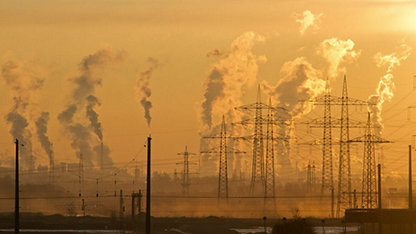Last week was the inaugural Buildings and Climate Global Forum (BCGF) in Paris. Arranged by the French Government and the UNEP/Global Alliance for Buildings and Construction (GlobalABC), it continued the much-needed momentum generated from the launch of the Buildings Breakthrough at COP28 in Dubai, UAE last year.
As we know, the built environment contributes between 37% - 40% of all CO2 emissions globally, and buildings consume around a third of all energy, globally. Currently we are well off target from getting to near-zero by 2030, let alone net-zero by 2050, as highlighted in the latest edition of the Buildings and Construction Global Status Report.
There was unanimous agreement across all the Forum’s speeches, discussions and meetings that the mission is clear; we need to decarbonise across the lifecycle, at pace and in an equitable way, ensuring a just transition.
RICS was proud to be part of the week, which included a series of pre-forum events. This brought the whole of the buildings and climate value chain together to discuss, debate, examine and explore solutions, challenges and opportunities. Most importantly, this includes working collaboratively to reduce carbon emissions, while in tandem creating positive social and economic outcomes for all worldwide, with a specific focus on the global south.
We continued our work and discussions as a member of the World Business Council for Sustainable Development's Market Transformation Agenda. This included a workshop to discuss the future of this agenda on the role RICS and our members can play in harmonising whole life carbon assessment policies and standards across the globe
The week continued with Head of Construction, Amit Patel MRICS, participating in a panel event covering Buildings Breakthrough Priority 1, focused on standards and certification. Meanwhile, Interim Head of Sustainability Anil Sawhney spoke on a panel on solutions and challenges for digital innovation to drive the reduction of whole life carbon emissions.
RICS CEO Justin Young also had the pleasure of participating in a high stakes CEO roundtable, as well as speaking with the Minister for Energy Efficiency and Green Finance Lord Callahan. They discussed RICS’ wider work on sustainability, including the support needed for the adoption of our whole life carbon assessment (WLCA), professional standard, 2nd edition. In addition, RICS President Tina Paillet was invited to a panel to discuss high-level recommendations towards a sustainable built and natural environment.
In support of this, RICS launched 4 key deliverables to support the BCGF. These include guides and playbooks to help the profession adopt the WLCA standard:
- global harmonisation framework for WLCA
- WLCA – a guide for clients
- capacity building playbook for a sustainable built and natural environment
- national playbook for implementing WLCA.
These resources are available to download on our WLCA hub.
We are also pleased to have become a member of the Whole Life Carbon Policy Coalition. This global initiative, led by the Department for Energy Security and Net Zero, further cements institutions’ influence on this important agenda, including World Green Building Council (WGBC), UNEP/GlobalABC, World Business Council for Sustainable Development (WBCSD) and International Finance Cooperation (IFC). Over the course of the next eight months leading up to COP29, held in Baku, we will work with members of the coalition to get to a unifying framework for consistent measurements of whole life carbon across the built environment.
It was a productive week, packed full of meaningful engagements where the RICS team could advocate for the role of standards, especially in respect to whole life carbon. It was also productive to highlight the role of our members being the trusted professionals who can help clients – be they businesses or governments – to measure and address/reduce carbon emission across the lifecycle of their portfolios.











